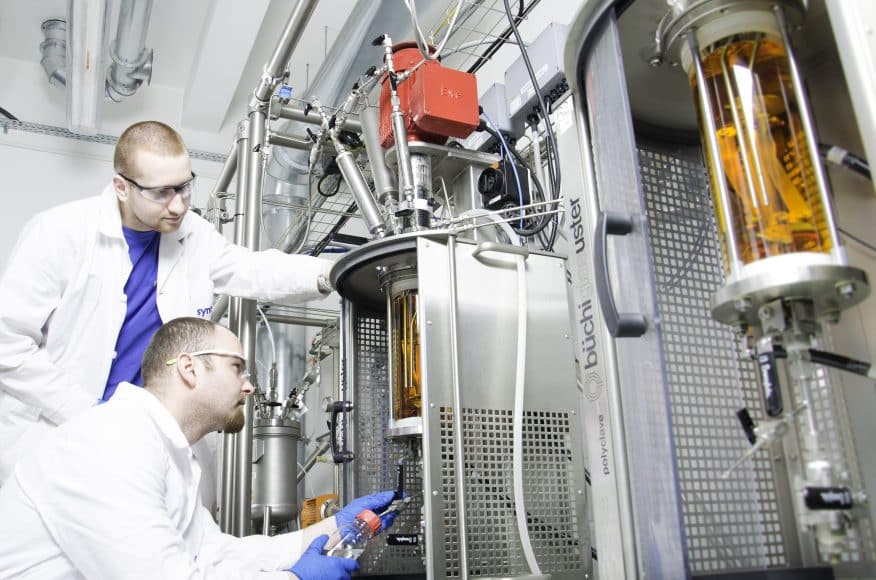The National Centre for Research and Development (NCBR) and Synthos Dwory 7 Sp. z o.o. have signed an agreement to co-finance an innovative project in the field of hydrogen technology, valued at PLN 105 million. The agreement is the result of a substantive evaluation in the “IPCEI Hydrogen” competition, financed from the European Funds for Modern Economy programme, and funded by the European Regional Development Fund, within the framework of the cohesion policy.
The IPCEI projects (Important Projects of Common European Interest) are key projects of common European interest, for which the European Commission has issued a positive decision allowing the granting of aid. This mechanism supports economic and competition policies in the European Union to enhance the potential of the European industry in global competitiveness.
“IPCEI projects are ambitious, cross-border and integrated projects, significant for their contribution towards making the European Union’s objectives a reality. The IPCEI for the development of hydrogen technologies will cover a large part of the value chain of hydrogen technology. We expect this to lead to the development of key breakthrough technologies and create about 20,000 jobs. IPCEI also involves significant technical and financial risk, hence the need for public support to encourage companies to invest. Such daring, ambitious and responsible projects are funded by European Funds. As part of this IPCEI, 35 companies operating in various member states, including SMEs and start-ups, will implement 41 projects contributing to the IPCEI’s objectives”, said Angela Martinez-Sarasola, head of the Polish Division in the Directorate for Regional and Urban Policy of the European Commission.
Synthos Dwory 7’s project, “Development and demonstration of hydrogen production technology based on high-temperature decomposition of steam using zero-emission energy resources” selected for the NCBR’s “IPCEI Hydrogen” competition is intended to increase energy independence, while reducing the European Union’s dependence on Russian sources of energy. The technologies being studied in this project are highlighted in the Polish Hydrogen Strategy as the highest priority on the path of development of the national hydrogen economy.
“IPCEI projects are unique undertakings – they are capital intensive while simultaneously being crucial from the perspective of both innovation at the EU level and its strategic goals. Hence, in the competition, only entities were allowed to participate for which the European Commission issued a positive decision enabling state aid”, said Prof. Marcin Sobczak, Deputy Director of the National Centre for Research and Development.
Modern Hydrogen Production Technology
In addition to the R&D+I stage (research, development, and innovation), the beneficiary of the IPCEI competition is also required to make the first industrial implementation. The primary phase of the project involves developing two prototype technologies – high-temperature thermochemical water decomposition cycle Cu-Cl and solid oxide electrolyser (SOE). Based on the results obtained, one of them will be chosen for the construction of a demonstration installation for producing hydrogen on an industrial scale.
The project will result in a hydrogen production installation with parameters of 1400 t. per year, the efficiency of the system exceeding 55%, and the cost of producing one kilogram of hydrogen below 5 euros.
“The implementation of the project will allow for the acquisition of a low-emission source of hydrogen for process, transport, and energy applications. This will be possible thanks to the use of innovative H2 production technology, which is oriented towards industry, including the energy-intensive sector, in which Synthos operates. The anticipated outcome of the project is a reduction in CO2 emissions, which will contribute towards achieving environmental objectives, especially those related to the European Green Deal”, emphasized Zbigniew Warmuz, CEO of Synthos. “Moreover, the demonstration installation will be a reference object confirming the feasibility of applying this solution, serving as an incentive and stimulus for the market to carry out similar investments.”
The project fits the objectives of the Synthos Group and is complementary to the integration of the installation with zero-emission SMR/MMR atomic reactors. The completion of the project is planned for 30 September 2027.
The IPCEI Hydrogen competition is an instrument implementing Priority III – Greener Businesses of the European Funds for Modern Economy (FENG) programme.
